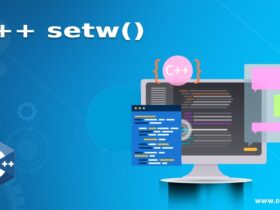Degree training will go through a transformation. It is best a be counted of time. Full-time programs will fade out, giving a manner to continuous learning. Here is why degree training could be disrupted and what educators should do to create meaningful studying possibilities. The first issue is relevance. In an average 4-year degree, by the point college students pop out of the institute, they realize their hobby areas have been modified, or work requirements have advanced. Education desires to be extra dynamic to a learner’s interest and the enterprise’s needs.
Learners will pick non-stop development programs that may combine with work. Second, it’s miles turning into easier for employers to evaluate the competencies and attitudes of personnel rather than depend upon their levels and interviews. Twenty-first-century competencies have become more critical than possessing data, which can be found on the net. The first-class of a B. Tech degree holder or any degree holder has a large variance. Since nobody can assure the first-class applicants from the same institute, employers lodge different ways of assessing. Thus, the reliance on a degree to determine the employability of someone is decreasing, giving a manner to evaluate 21st-century capabilities.
The fee of full-time training is any other thing to impact the future of degree-based programs. This includes lessons in addition to possible expenses. An important portion of a person’s employment depends on their workplace’s overall performance. A degree of societal information and highbrow adulthood is extra important than the knowledge gained in university. Smart rookies will invest in this instead of dropping out time and money in unproductive years on campus.

Fourth is the advent of the era. Machines will overtake the group of workers anywhere possible. Creative jobs will flourish while repeat paintings will get transferred to devices. When our opposition is with generation rather than fellow humans, one-of-a-kind competencies and competencies will dominate the job market. Degrees that prepare newcomers for complicated trouble-fixing and innovative consequences will stand out. Others will find agencies shopping for an era instead of coming for placements.
Fifth, the demand for an “authorities task” is declining. Several elements contribute to this, such as an upward push in entrepreneurship and attractive activity opportunities inside the private zone. Possibly, the declining status of a public quarter profession. The personal sector would always rank expertise better than the diploma, which may not be real for the public zone.
Sixth, the gig economic system is predicated on someone’s capability to complete the paintings. Unlike formal employment, the gig financial system does not place much significance on the freelancer’s educational heritage. The growth of the gig economic system is giving higher value to exceptional labor instead of the degree. Therefore, the want for non-stop mastering and performance development is stronger than ever.
In this situation, educators, institutions, and policymakers need to compare the learning desires of the future and devise appropriate interventions. There are some things that futuristic training will include. First, it is going to be linked to the administrative center. The proportion of time spent within the place of business will be higher than that finished within the classroom.
The training will provide a philosophical foundation for the observations and learnings in the workplace. Thus, ‘complete-time schooling’ might suggest greater time on projects and less time within elegance. Second, modular mastering will gain recognition, and this principle should move into the program design of tiers. Shorter programs that help newbies develop unique abilities turn into the norm.














